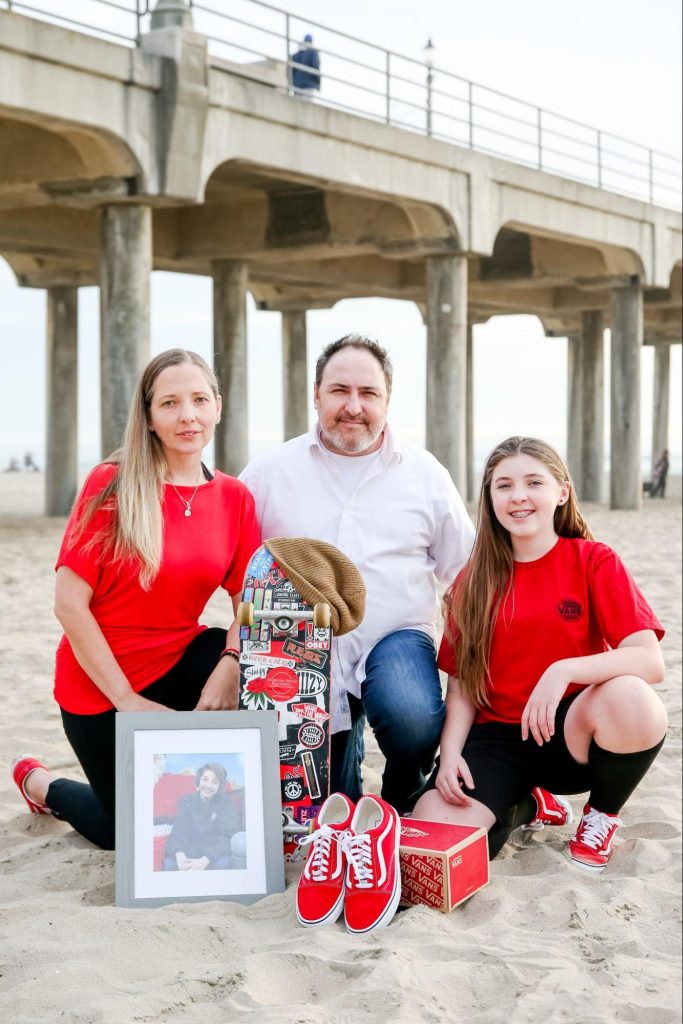Parent Advisory: Social Media Drives New Surge of Fentanyl Deaths in Children

American children are facing a crisis fueled by social media: fentanyl, a powerful and often fatal opioid. Synthetic opioids like fentanyl are now the leading cause of death for young adults in America, and kids are not far behind. Teen deaths from fentanyl have surged over the past few years – tripling overall and increasing 5x for Black teens – according to provisional data from the Centers for Disease Control. In 2021, 77% of all teen overdose deaths involved fentanyl. The FDA also recently warned of “rainbow fentanyl” manufactured to look like candy to appeal to children. Experts agree the surge of fentanyl deaths is overwhelmingly traceable to social media, where children can easily buy prescription and other drugs, many of which are counterfeit and contain lethal doses of fentanyl.
Amy Neville, mother to Alexander Neville who died from fentanyl poisoning warns:
“My son Alexander died from fentanyl poisoning —a drug he mistook for something else purchased off Snapchat – when he was 14. Alexander was a normal, average teenager with a loving and supportive family. He connected with a drug dealer anonymously on Snapchat hoping to get OxyContin. However, It turned out that he was being sold fentanyl, a cheaper and more deadly alternative that killed him quickly. Platforms like Snapchat make it easy to connect anonymously to young users making deals like the one that killed Alex far too common.”
Parents should know that drugs are sold on all major social media platforms, including Instagram, Facebook, Twitter, Snapchat, Pinterest, TikTok, Discord, and Telegram, and that a fatal dose of fentanyl can contaminate any other drug or supplement, including products made to look like vitamins.
- Fentanyl is now the leading cause of accidental death for young Americans, killing more people than suicide, car accidents, or gun violence. It is found in every part of the United States.
- Every drug purchased on the internet, on the street, or from people can contain fentanyl regardless of the form (powders, capsules, pills, and more).
- The U.S. Drug Enforcement Administration found that 1 in 3 counterfeit pills on the market contained a potentially lethal dose of fentanyl.
- Kids of color have been the hardest hit by the fentanyl crisis, with the highest increase in deaths among Native American, Latinx, and Black youth.
Parents should take the following steps to help keep their kids safer from exposure to fentanyl:
- Talk to your kids about the dangers of fentanyl. Warn them that “one pill can kill” and any substance that is not purchased at a pharmacy or legal dispensary – including those purchased over social media – could contain a potentially deadly dose of fentanyl, which is 50x stronger than heroin. Tell kids know that no matter what, they can come to you as a safe place for help in an emergency.
- Limit younger kids’ access to social media. The minimum age for most social media platforms is 13 because younger kids lack the developmental tools to navigate social media risks. Parents should limit younger kids’ access to social media.
- Consider keeping naloxone at home. Naloxone, sometimes sold as Narcan, is a life-saving treatment that can reverse an overdose and is available without a prescription at all major pharmacies. Contact your local health department to see if you can get it for free. Show teens how to use naloxone if someone you know is at increased risk for opioid overdose.
While parents are a critical part of keeping kids safe, tech companies must address the crisis of drug sales on their platforms that are killing children. ParentsTogether recommends tech platforms take the following steps to protect kids’ from fentanyl-induced death:
- Flag posts that may promote the sale of any drug online. Add a warning about the pervasiveness of fentanyl, its dangers, and that it may be found in any substance purchased online. Early studies of content flags have shown they are effective.
- Disrupt the production of fentanyl. Fentanyl production is often coordinated globally on social media platforms. Companies should monitor and delete listings for chemical precursors of fentanyl and stop hosting ads for fentanyl components.
- Partner with public health experts and share information on harm reduction. Provide a free platform for evidence-based resources that provide information and tools to parents and kids about substance use, treatment, and safety.
Click here to see more ways ParentsTogether is asking tech companies to keep kids safe.

